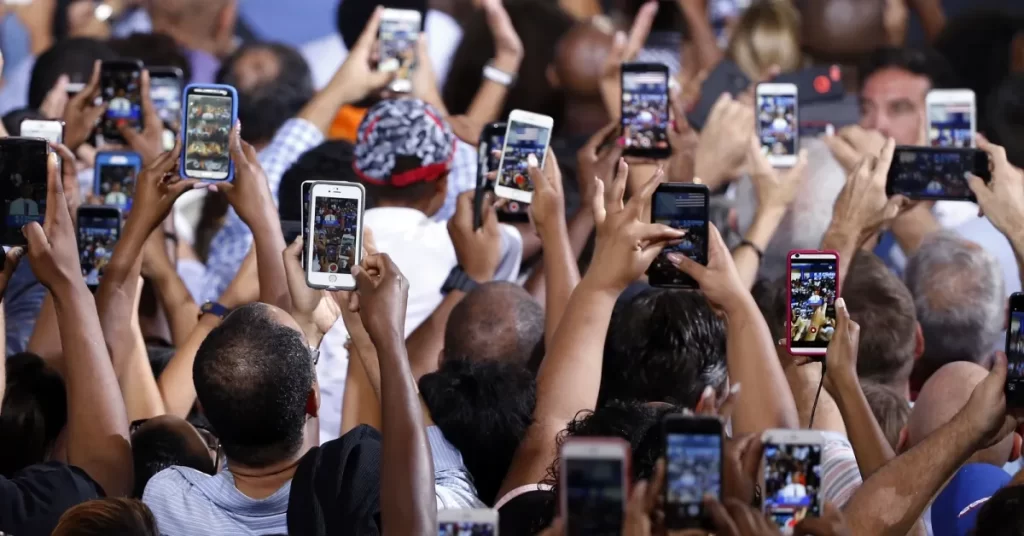For years, experts have expressed concern about how much time people spend scrolling through their phones and sounded alarms on its impact on mental health. Some experts have compared the effects of social media addiction on the brain with those of alcohol and cocaine. And it doesn’t look good.
At least 4.5 billion people – more than half of the world population – have a social media account today, and the average user spends around two and a half hours per day online. Since the advent of television, hardly any technological invention has revolutionalized human interaction the way social media has done. The rise of social media has indeed been unprecedentedly dramatic.
The American tech guru Mark Zuckerberg launched Facebook at Harvard University in February 2004. Some 650 students had created accounts days later before the platform was made available to the general public in September 2004. Today, Facebook has over two billion daily active users and 6,403,400 Tanzanians.
After much research, experts have declared excessive online consumption a type of mental disorder. Mental illnesses – including depression, anxiety, bipolar disorder, and schizophrenia – are disturbingly common today.
According to Our World in Data, 3.8 percent of the global human population suffered from anxiety disorders in 2019 while 3.4 percent suffered from depressive disorders. In Tanzania, the situation was worse with at least 4.7 per cent of the total population believed to have suffered from anxiety disorders in 2019 while 3.8 per cent suffered from depressive disorders.
Excessive Social media and online consumption is an impairment of the individual’s psychological, mental, and emotional states and everyday behavior in educational, occupational, and social interactions. It is linked to the neglect of critical intentions and postponement of other activities and emotional or non-rational salience of the Internet regarding desire to use, the anticipation of use, and self-control relative to use.
Similarly, excessive online consumption is positively linked to behavioral procrastination – postponing one’s intended course of action despite acknowledging the consequences of that delay. Behavioral procrastination involves a self-regulation style that leads to deferral in a task’s start and completion. Key in behavioral procrastination is the postponement of intended action or the avoidance of the implementation of an intention.
If actual intent does not exist relative to an action, postponing it is not procrastination. Thus, procrastinators do not differ from non-procrastinators in their goal to perform a behavior; instead, they differ in their ability to take action on their intentions. Still, procrastination has consequences akin to avoidance because it is associated with poor performance across domains, including health, academics, and economics.
Procrastination and Excessive Online Consumption: A Notable Connection
Regarding personal well-being, procrastinators delay seeking care for their health problems and have challenges regulating consumption, eating healthily, and exercising. Key predictors of procrastination are task aversiveness and delay, low self-efficacy, lack of self-control (control issues regarding distractibility, organization, and achievement motivation), and impulsiveness.
When these drivers of procrastination are considered along with the aspects that characterize excessive online consumption (neglect of intentions, postponement of activities, and non-rational salience of usage in terms of desire, anticipation, and lack of self-control), the overlap between procrastination and overuse of the Internet is notable.
Thus, a positive relationship between behavioral procrastination and excessive online consumption is expected. Experts predict that individuals led by impulse and desires that lack self-control will engage in excessive online consumption and exhibit higher levels of behavioral procrastination.
Something else associated with social media and excessive online consumption is low levels of emotional intelligence.
Emotional intelligence is an individual’s ability relative to four particular intelligences: perception of emotions, use of emotions, understanding of emotions, and regulation of emotions in self and others. It plays a significant role in one’s well-being.
With high levels of emotional intelligence comes the ability to correctly perceive, understand, use, and regulate emotions in oneself and others. The four different branches of emotional intelligence are organized from basic psychological processes related to emotions such as expression and recognition) to more psychologically integrated processes such as understanding and regulation.
Excessive online consumption is associated with an overwhelming desire to use, intense feelings of anticipation relative to use, and a lack of self-control regarding use. It parallels the non-rational emotional challenges of impulsiveness and control associated with behavioral procrastination.
Consequently, emotional intelligence is expected to moderate the relationship between behavioral procrastination and excessive online consumption. Specifically, low levels of emotional intelligence will likely enhance the relationship between behavioral procrastination and excessive online consumption.
In other words, emotional intelligence moderates the relationship between behavioral procrastination and excessive online consumption, such that low levels of emotional intelligence will increase the impact of behavioral procrastination on excessive online consumption.
Read more technology insights here.

